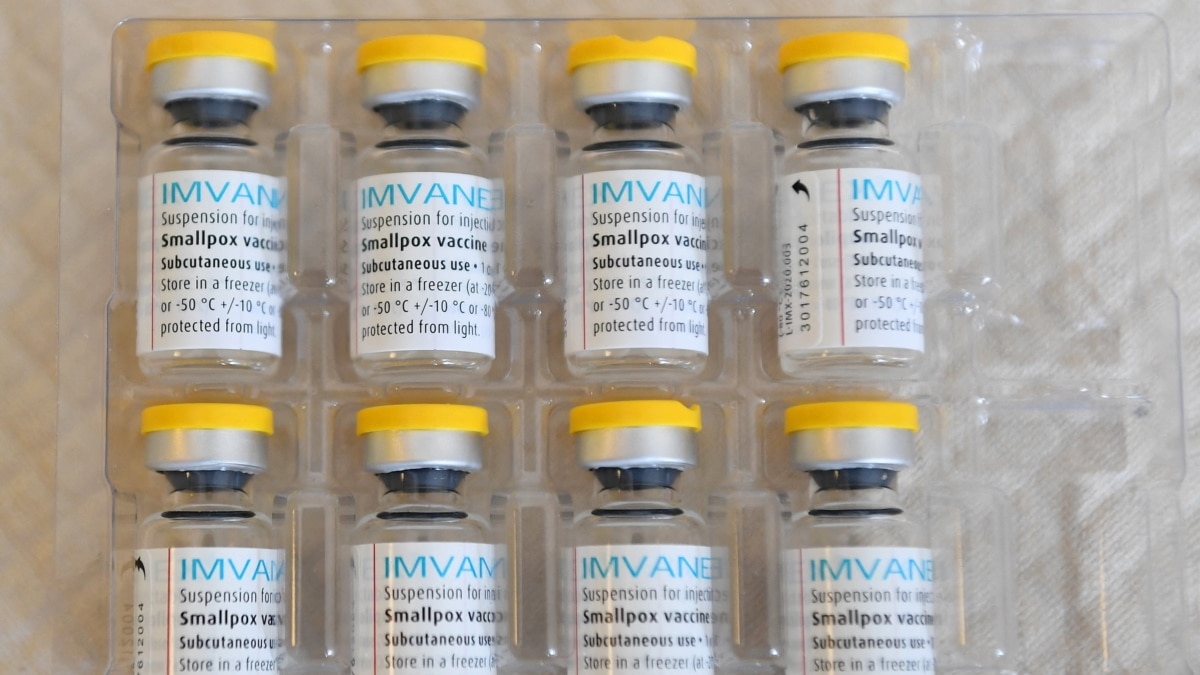The Africa Centres for Disease Control and Prevention (CDC-Africa), which recently declared the ongoing smallpox outbreak a public health emergency, said the continent would need 10 million doses of vaccines to stop the spread of the disease.
But experts say a global shortage of vaccines against the disease will affect any vaccination campaign in Africa.
Experts urge African countries to produce vaccine.
There are currently three types of smallpox vaccines, and it is difficult to get hold of them all, says Salim Abdool Karim, a professor and virologist at the Nelson Mandela School of Medicine in Durban, South Africa.
“It’s not available, and if companies start making it now, it will be a long time before the doses are available, and the second is that it’s expensive, selling for $100 to $200 a dose, and it’s necessary for two doses for everyone,” Karen points out, warning that “it’s a very expensive vaccine.”
Smallpox, officially known as monkeypox because of its original discovery in monkeys in Denmark, was first found in humans in 1970 in the Democratic Republic of the Congo, the epicenter of the current outbreak.
Professor Karim says Mpox, which previously did not pose serious health problems, has mutated and the current strain is worrying, especially for younger and more vulnerable populations.
“If left unchecked, we will see smallpox spread very rapidly, and the reason is that it is now transmitted through sexual contact. We have seen with other sexually transmitted diseases, like HIV and so on, that sexually transmitted diseases can spread widely in Africa.”
Since July, smallpox cases have been detected in the Democratic Republic of the Congo, Congo Brazzaville, Burundi, Kenya, Rwanda and Uganda.
Kenya has recorded two cases and hopes to receive vaccine doses as part of international efforts to stop transmission of the disease.
The Director-General of Health says he is concerned about the global shortage of vaccines.
“Africa needs 10 million doses, and by the end of the year there may only be 2 million if Bavaria Nordic, the vaccine manufacturer, redirects its manufacturing capacity to stop manufacturing or reduce manufacturing of other vaccines and prioritises the smallpox vaccine, in terms of priority, of course, it will be linked to the number of cases in each country,” points out Patrick Amoth.
The official admits that Kenya, which has two cases, is not a priority, but says there is no cause for concern because the country has taken measures to deal with the outbreak.
“We have increased our coordination by activating the Public Health Emergency Operations Centre, and we have established rapid response teams to support counties with contact tracing and other necessary logistics, including case management,” says Patrick Amoth.
Faced with this reality, professor and virologist Salim Abdul Karim says that wealthy countries may be hoarding available vaccines in an attempt to preserve them for their citizens.
Therefore, he challenges African governments to move towards developing their own vaccines locally.
“I am absolutely convinced that if African scientists come together, we can make a smallpox vaccine and manufacture it here in Africa. It is not rocket science. All that is required is to make the investments to achieve this goal,” says Karen.
As vaccines continue to wait, health experts say testing, contact tracing and educating people are the best strategy for dealing with the outbreak in Africa, at least for now.
By Juma Majanga, Nairobi

“Wannabe internet buff. Future teen idol. Hardcore zombie guru. Gamer. Avid creator. Entrepreneur. Bacon ninja.”

